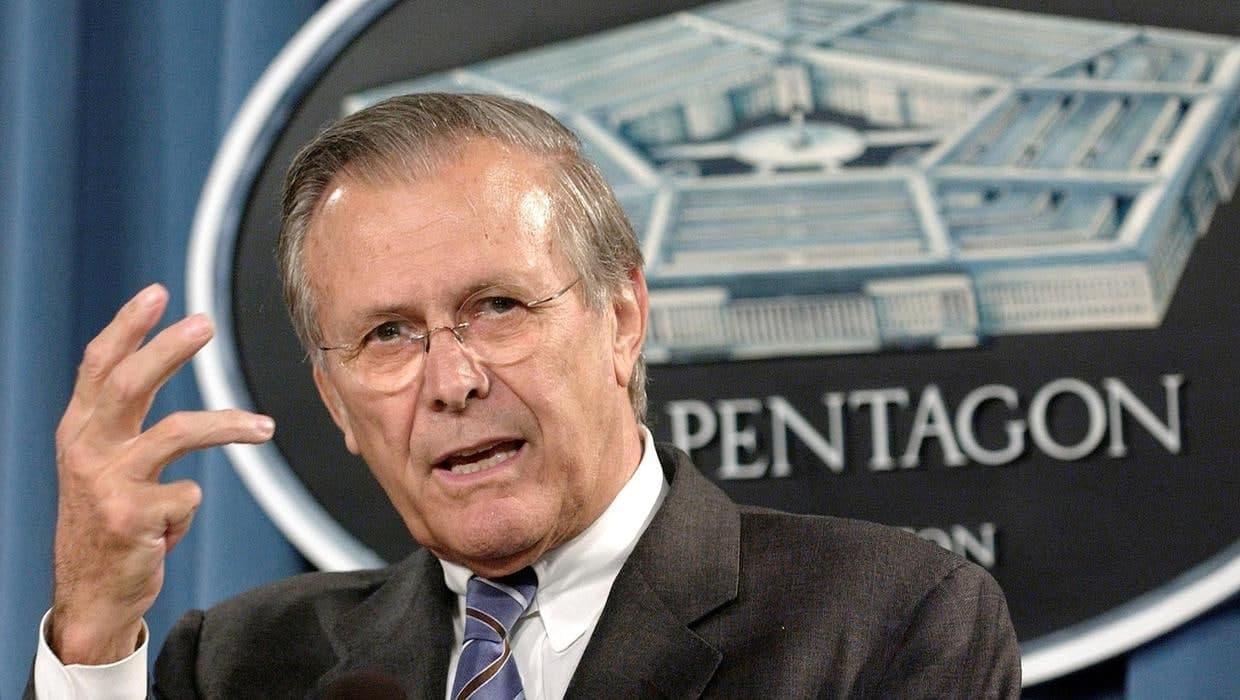WASHINGTON, June 30 (AFP) - Donald Rumsfeld, the cocksure and unrepentant defence secretary who led the United States into war in Iraq and Afghanistan, has died, his family announced on Wednesday (Jun 30). He was 88.
In charge of the US military for most of George W Bush's presidency, Rumsfeld was stubborn and brash, famously dismissing widespread looting after US troops captured Baghdad by quipping, "Stuff happens".
For millions who took to the streets to denounce the war in Iraq, Rumsfeld and vice president Dick Cheney were emblematic of what was seen as excesses in Bush's "war on terror", including the indefinite detention of suspects in Guantanamo Bay, Cuba, and the abuse of Iraqis by US jailers at Abu Ghraib prison.
The former congressman's brand of hawkish politics eventually fell from favour as politicians from both sides turned on "forever wars", and the troops he first sent to Afghanistan after the Sep 11, 2001 attacks will make their final withdrawal weeks after his death.
His family said that Rumsfeld - who after resigning in 2006 not only spent years defending his legacy but also dabbling in software and even releasing a solitaire app - died in Taos, New Mexico, and described "the integrity he brought to a life dedicated to the country".
Bush called his defense secretary, whom he defiantly kept in his cabinet until rival Democrats won control of Congress in 2006, "an exemplary public servant and a very good man".
"He was a faithful steward of our armed forces, and the United States of America is safer and better off for his service," Bush said, without directly mentioning the decision to invade Iraq.
The United States invaded Iraq on Mar 20, 2003 with a force of fewer than 100,000 troops. Baghdad fell quickly, and Saddam's regime collapsed amid an orgy of looting.
But the failure to commit enough troops to secure the country became viewed as a central mistake, leading to intense civil war in which hundreds of thousands of civilians died.
With Saddam's Baath Party disbanded, Sunni Muslims launched an insurgency that would later be the root of the brutal Islamic State group as the majority Shiites took the reins of power with backing from Iran.
Rumsfeld long defended the war. But in his memoir, Known and Unknown, he regretted that Bush did not accept his resignation after pictures emerged of prison abuse in Abu Ghraib, saying he had become a "dangerous distraction".





